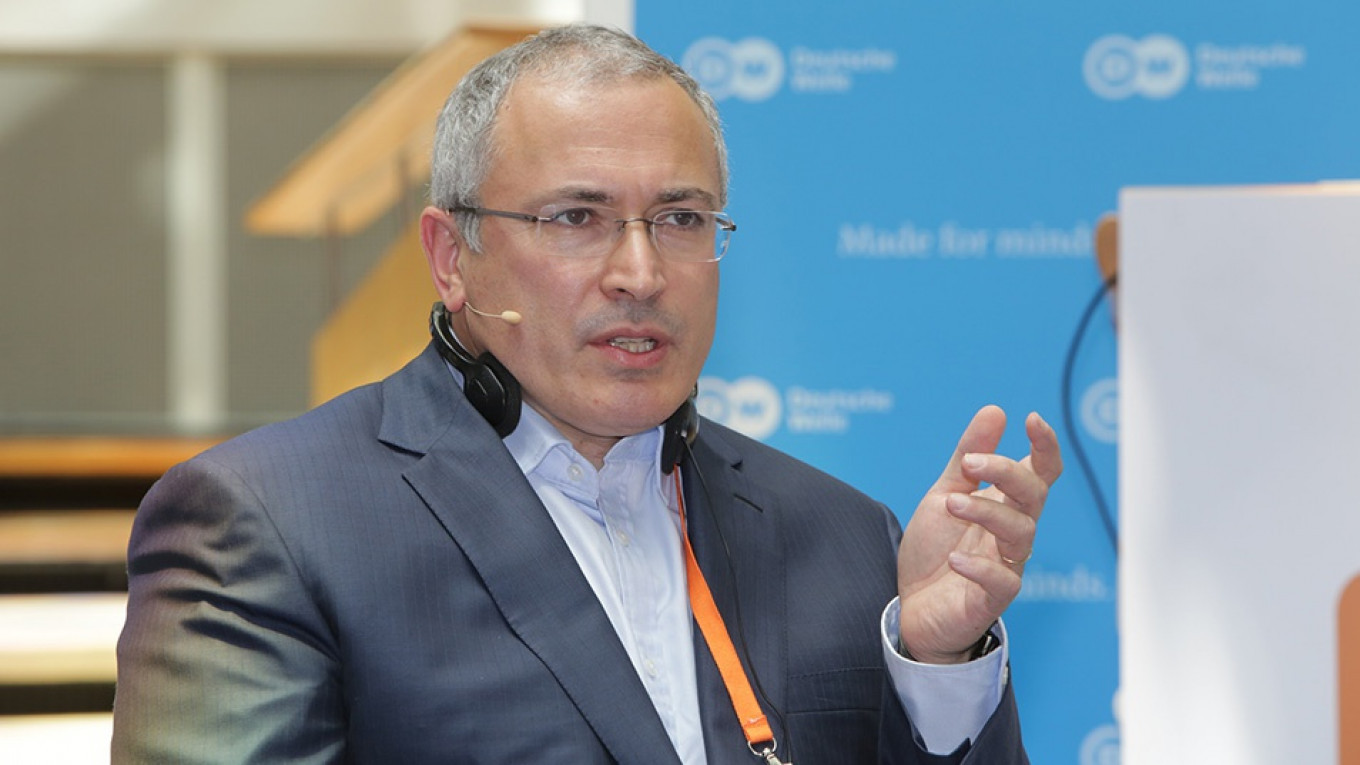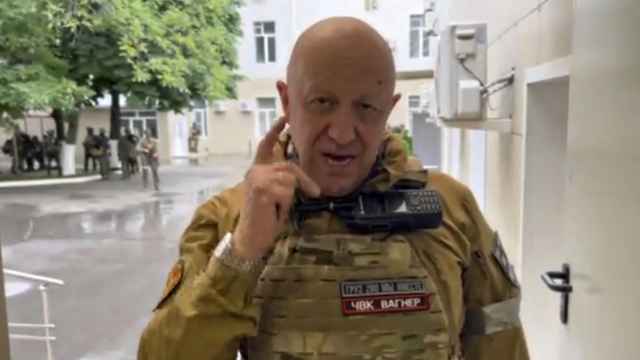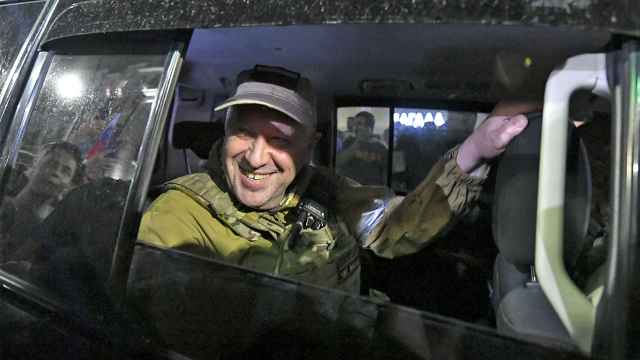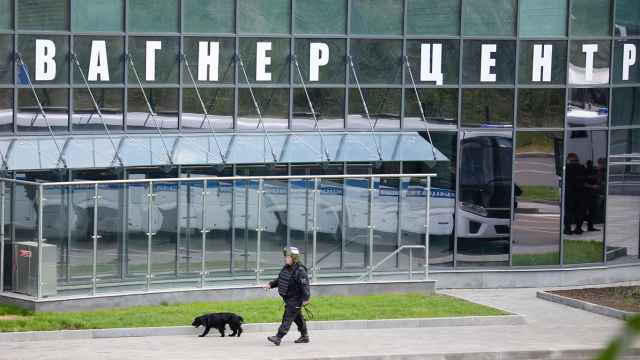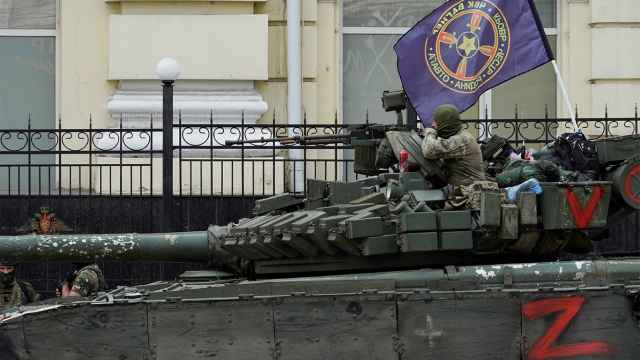Wagner mercenary group leader Yevgeny Prigozhin's mutiny against the Russian military came as a shock to much of the world, but it was not necessarily a surprise. Prigozhin has long been considered a volatile and uncontrollable asset in Putin's ongoing conflict with Ukraine.
The Russian opposition has regularly criticized Wagner's actions, and those of its leader, over the past year and a half. However, the weekend’s fast-moving events have prompted a shift in the views of opposition politicians and political analysts who previously anticipated Prigozhin’s potential to disrupt the country through armed violence.
Many opposition politicians and political scientists had predicted Prigozhin to be the element of Putin’s Russia that was bound to set off a major structural shift, most likely with the use of armed violence. Yet as soon as this scenario became a real prospect, with Wagner's forces controlling a military command center in the south and headed toward Moscow on Saturday, many liberal-leaning Russian political figures seemed to have taken a cautious approach to the unraveling events.
One widely recognized member of the Russian opposition did speak up more concretely — and, perhaps, not in the way that most would have anticipated. Mikhail Khodorkovsky, the exiled Kremlin critic, published a tweet in which he all but backed Prigozhin’s so-called “march of justice.”
“As strange as it may sound, I think anti-war Russians should support Prigozhin in this moment. He’s no ally of ours, and this support will be very temporary and conditional, but his march is a huge blow to Putin’s legitimacy, and anything that fractures the regime is good,” Khodorkovsky tweeted.
He justified his position by claiming that Prigozhin echoed the very ideas that the Russian anti-war movement has been espousing since Feb. 24, 2022. On the surface level, this may seem a logical conclusion on Khodorkovsky’s part — yet there are a number of fallacies in his statements.
First of these inconsistencies is the stance that Khodorkovsky had taken toward Prigozhin in the last year and a half, which oscillated between scorn and disgust. Of course, people are capable of changing their views when it is proven that their initial beliefs were false. However, Prigozhin has done virtually nothing to disprove Khodorkovsky’s initial opinion of him. Moreover, Wagner’s leader has been known in the past to utilize standpoints more closely associated with the Russian opposition for his own gain. Before he announced this weekend’s “march,” his use of the opposition’s key talking points was widely disregarded as trolling.
What changed? Does the mere fact that Prigozhin set out on an insurrection suddenly prove that he is no longer a stranger to the anti-Putin opposition? It’s worth remembering that Prigozhin has so far not said anything resembling a direct criticism of the Russian president.
Second, it is clear that Khodorkovsky spoke too soon. His tweet may have been heavily influenced by its author’s emotional reaction to current events. But there’s no reason that Khodorkovsky’s post couldn’t have waited until the situation was clearer. The main issue lies in the fact that Khodorkovsky appears to be attempting to align himself with a revolutionary movement, positioning himself for a role in shaping Russia's future decision-making process. Whether Prigozhin would have succeeded in seizing power or a democratic government emerged, Khodorkovsky seeks to present himself as someone who supported the "initial rebellion."
Unless there is something that we don’t know (and it is very doubtful that there is), Prigozhin has no obligations to Khodorkovsky, making it highly unlikely that the Kremlin critic’s support would have been rewarded if the "march" were to have succeeded. Khodorkovsky is exceptionally smart and perhaps he could have anticipated that Prigozhin’s enterprise was bound to fail. Yet his willingness to support an armed revolt in Russia was designed to gain him some extra popularity points among those anti-Putinists who wish to achieve regime change via an armed rebellion.
The third point is not so much a fallacy in Khodorkovsky’s statement as it is a projection of the future of his platform. Any revolution from the past 200 years has had a very similar structure: a revolutionary-minded, politicized minority enlists the help of current regime functionaries, offering minimal or no accountability for their actions. The key aspect here is the direction of this alliance. The functionaries of the current regime join forces with the revolutionaries, not the other way around. This pattern has endured due to the gradual accumulation of a following by the revolutionary minority, which undermines the existing regime. Eventually, the regime's elites realize that their own preservation hinges on supporting the rebellion.
Khodorkovsky's support for Prigozhin breaks this pattern. Prigozhin was the one advocating for action against the current order while being part of that very order. This implies that Khodorkovsky, despite previously calling for Putin's displacement, acknowledges that the revolutionary movement he represents is no longer effectively destabilizing the situation in Russia to the point where the elites would join the opposition. Instead, Khodorkovsky suggests that the opposition should align with the elite.
Lastly, Khodorkovsky's position raises concerns about supporting a man known for his cruelty and lack of moral integrity. Prigozhin authorized the execution by sledgehammer of a deserter who had wilfully surrendered to the Ukrainian military. Khodorkovsky's position aligns with a utilitarian perspective that views actions as morally right based on their context. This suggests that by creating circumstances where almost anything could be labeled as morally right, one can justify their actions every time. While Khodorkovsky does not absolve Prigozhin of his wrongdoings, he implies that his followers should adopt this utilitarian viewpoint, at least temporarily. There is but one thing to say in such cases: there is no future for those that willfully ally with murderers. A potential civil war, if it were to occur, would likely result in significant bloodshed. The future leaders of Russia must be individuals who feel emotional and mental anguish when faced with decisions that may lead to even a single death, even if they believe it serves the greater good.
Khodorkovsky's support for Prigozhin's "march of justice" raises significant concerns and invites scrutiny. While the Russian opposition's reactions to this weekend’s events differ, Khodorkovsky's stance appears to be driven by opportunism, as he seeks to secure influence within a revolutionary movement that may shape the future of Russia. Furthermore, his endorsement of Prigozhin contradicts historical patterns of regime change and poses ethical dilemmas.
As the situation continues to evolve, it is vital to critically analyze the motivations and implications of such alliances, especially now that it seems that the revolution has been delayed.
Since Prigozhin's stand-down, Khodorkovsky’s stance has become more concrete. He envisions that the only rebellion capable of overthrowing Putin’s regime is one that uses force. Yet he suggests that those with the guns in their hands should somehow not be given power. It remains to be seen how one achieves that.
A Message from The Moscow Times:
Dear readers,
We are facing unprecedented challenges. Russia's Prosecutor General's Office has designated The Moscow Times as an "undesirable" organization, criminalizing our work and putting our staff at risk of prosecution. This follows our earlier unjust labeling as a "foreign agent."
These actions are direct attempts to silence independent journalism in Russia. The authorities claim our work "discredits the decisions of the Russian leadership." We see things differently: we strive to provide accurate, unbiased reporting on Russia.
We, the journalists of The Moscow Times, refuse to be silenced. But to continue our work, we need your help.
Your support, no matter how small, makes a world of difference. If you can, please support us monthly starting from just $2. It's quick to set up, and every contribution makes a significant impact.
By supporting The Moscow Times, you're defending open, independent journalism in the face of repression. Thank you for standing with us.
Remind me later.



